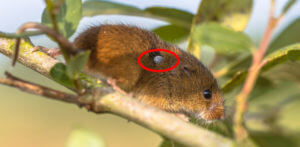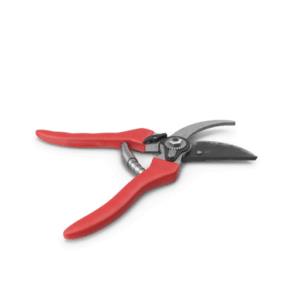Your yard is a place where your children play, your pets explore, your friends gather, and above all a place where you should feel safe. The last thing you want to deal with is fleas and ticks. They often carry harmful diseases and leave itchy rashes when they bite. They’re especially common during the summer months so it’s important to take preventative measures. Hiring a professional pest control company is one way to stop these bugs in your yard.
You may associate these blood-sucking parasites with tall grass and forests since that’s where most people acquire them. They’re certainly more prevalent in those areas, although your yard is still at risk.
How Do Fleas And Ticks Get Into My Yard?
The most common way is by hitchhiking on wild animals. Many fleas and ticks latch onto common animals such as squirrels, rodents, bunnies, skunks, possums, raccoons, coyotes, foxes, deer, etc. Fleas and ticks will often fall from their fur while they scurry around your yard and proceed to lay a bunch of eggs. The adult and freshly hatched larvae lurk in your grass, waiting for a juicy pet or child to come in contact with them.

How Do I Know If I Have A Flea Or Tick Infestation?
A majority of people don’t realize that they have a flea or tick problem until someone in their family notices one on themselves or a pet. Preferably you’d want to find out if you have an infestation before this happens.
The Sock Test
The best way to test your yard for fleas or ticks is to do a “sock test”. You’ll need to put on a long pair of knee-high socks and walk around your yard, especially where your children and pets like to frequent. If you have an infestation, you should notice fleas or ticks clinging to your socks. Even if there’s only one lone flea or tick, you’ll still need to act fast since these nasty creatures can lay up to 50 eggs per day!
How Do I Prevent Fleas And Ticks From Infesting My Yard?
The million-dollar question. There are actually a few very effective measures you can take to prevent these blood-sucking creatures from becoming a threat to you and your family. We’ve put together a few helpful tips for how to rid your yard of fleas and ticks.
1) Pest-Proof Your Yard
The key to preventing fleas and ticks from finding their way into your yard is to create an unfavorable environment. To do this you’ll need to regularly mow the grass, trim trees and hedges, dispose of yard clippings and old wood, and make sure there’s no stagnant water.
Like most pests, fleas and ticks love dark, moist areas. Getting rid of unnecessary yard gunk will help eliminate possible homes for these parasites and will also help prevent ant, mosquito, spider, termite, and cricket infestations.
2) Rodent-Proof Your Yard
You’ll also want to critter-proof your yard so that you can prevent fleas and ticks from catching a ride on the rodent express with the destination being your yard… To do this you’ll need to dispose of any bird or rodent nests, patch up holes in fences, pick up all garbage and keep a tight lid on your garbage bin, clean up birdseed or scattered pet food, and grow critter-resistant plants.
You can also create a pest barrier by either digging a trench or laying gravel around the perimeter of your yard. This will help discourage both harmful bugs and wild animals from paying you a visit.
Do The Worm!

We’re not talking about the dance move (although feel free to do that too!), we’re talking about a worm treatment. Microscopic worms called nematodes eat fleas while they are in larvae and pupae form. You can sprinkle these little guys around your yard to help prevent an infestation in the case that a critter gifts you some fleas and ticks. This treatment is a lot safer than spraying chemicals since it’s completely harmless to both your children and pets. You should be able to find them at your local gardening supply store or you can order them online.
Protect Your Pets
It’s a solid fact that people are obsessed with their dogs and cats. We all know someone who treats their pet as if they were an actual human being. I mean let’s be real you’re probably that person, but so are we so it’s all good! This unconditional love and adoration we have for our furry family members encourage us to do whatever we can to ensure their safety. That includes protecting them from fleas and ticks.

A few things you can do to make sure these blood-sucking creatures don’t harm your precious pets are to:
- Conduct regular flea and tick checks.
- Have your pet groomed regularly.
- Treat for fleas and ticks all year round, not just the summer months.
- Schedule regular veterinary checkups.
- Use a preventative product.
Your Yard Is Now Rid Of Fleas And Ticks!
Fleas and ticks can be two scariest pests to deal with since they transfer bloodborne illnesses. As long as you take as many preventative measures as possible and conduct regular flea/tick checks, you should have nothing to worry about. We want to help put your mind at ease so that you can enjoy the rest of your summer without fear! If you have any other questions in regard to ridding your yard of fleas and ticks, don’t hesitate to reach out to one of our pest specialists.
***Special offer: Add flea and tick prevention to your mosquito service for only $10 more!








